Modern Slavery Today: Roles & Responsibilities in Supply Chains
Ensuring that operations are free from modern slavery is a core area of focus for manufacturing and retail companies, which often have expansive global supply chains and many internal departments with thousands of staff. Modern slavery itself is a complex issue, and requires the skills, resources, and expertise of multiple people within any organisation to address.
The reality is, organisations differ and there is no one-size-fits-all model to structure a company’s modern slavery responses. However, through our work with many supply-chain based companies, we have identified some common profiles of employees with specific responsibilities and roles related to modern slavery.
The C-Suite Manager of a Brand
Executive-level managers within a brand. Common C-suite executives include chief executive officer (CEO), chief financial officer (CFO), chief operating officer (COO), and chief information officer (CIO).
The C-Suite within a brand/company are generally responsible for:
- Ensuring that combatting modern slavery is a key priority area for the company and its supply chain partners.
- Ensuring that policies and procedures related to modern slavery are established and maintained.
- Providing oversight over the monitoring and evaluation of such policies and ensuring that key staff are held accountable for commitments.
- Signing off on public statements (such as statements prepared under the UK/ Australian Modern Slavery Acts).
- Setting a tone-from-the-top to ensure consistency in messaging across the organisation on the company values and expectations related to their supply chains.
Brand Corporate Compliance Manager
A manager who is responsible for ensuring that a company’s policies and procedures comply with regulatory and ethical standards.
The brand corporate compliance management team is generally responsible for:
- Establishing and maintaining modern slavery policies and procedures, including communicating these to the rest of the company and C-Suite.
- Ensuring purchasing practices address potential modern slavery risk factors.
- Developing responsible recruitment practices for the company and its supply chains.
- Mapping the supply chain to understand where the company sources its goods, where possible down to raw material level.
- Developing a remediation plan for modern slavery cases that may be uncovered and monitoring the effectiveness of this.
- Providing grievance mechanisms for workers in supply chains to report on their working conditions and managing any grievances that are raised.
- Joining multi-stakeholder initiatives and working groups focused on modern slavery.
- Putting together plans for social auditing and spot-checks on factories.


Supplier Factory Owner
A person involved in the ownership or management of an industrial enterprise, supplying goods to the buying brand.
The management team at a supplier factory are generally responsible for:
- Developing and maintaining their own internal policies related to modern slavery, taking into account the expectations of the buying brand.
- Having oversight over the hiring practices for workers in the factory and implementing responsible recruitment processes.
- Providing grievance mechanisms for workers to report on their working conditions and managing any grievances that are raised.
- Partaking in social audits and spot-checks conducted on behalf of the buying brand.
Social Auditor
A specialist who reviews the records, accounts, processes and procedures of companies and organisations to ensure their financial and supply chain records’ validity and legality. Their role is to identify potential risks or issues that might exist within a supply chain.
A social auditor will generally be responsible for:
- Ensuring that the policies and procedures related to modern slavery are being met within the supply chain.
- Communicating with the brand and with the supplier on modern slavery issues.
- Conducting spot-checks and site visits to check working conditions.
- Developing and implementing remediation plans for potential incidents of modern slavery.
- Checking (amongst other things) that workers have employment contracts, are being paid correctly, are not restricted in freedom of movement, are not paying excessive recruitment fees, and have access to their identity documents.
This is just a snapshot of some of the roles and responsibilities that different supply chain partners play in addressing modern slavery. Contact us at [email protected] to access the extended version of this tool and many others.
Author – Phoebe Ewen

